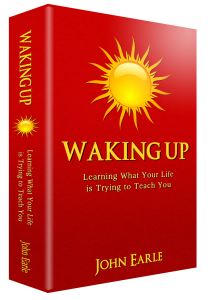Like so many people, I am enamored with the 13th century Sufi mystic, Jelaluddin Rumi. Despite the fact that he lived in another age, Rumi is today’s most popular and celebrated poet. One of my favorite Rumi poems is called No Room For Form. This poem is a paean to consciousness. At one point in the poem, Rumi says of consciousness and the love that it automatically engenders:
No need to wait until we die!
There is more to want here than money
and being famous and bites of roasted meat.
Written somewhere around 750 years ago, these lines perfectly describe the materialistic dilemma of our modern world. We easily see how these three items still represent the most cherished goals of most human beings. First, money. Greed has become the modus operandi of our consumer society and the foundation of business. All too often today, the bottom line overshadows any ethical or harmful considerations. Greed has become acceptable, if not actually “good”. Everyone wants more money. Few question this desire. The lottery, also known as “mathematics for the intellectually challenged,” could not exist without the deep craving for money. The world is consumed by the desire for money.
Then, fame. We can easily see our fascination with fame, which now, supposedly, can even be magically enjoyed vicariously through reality TV shows, and other programs about being and getting famous or hanging out with the stars. When a group of high school students was recently asked, “what do you want to be when you are older?” the majority answered: “I want to be famous.” Fame, it seems, is something that magically descends onto someone! No effort or work involved here. And few doubt that it will bring happiness.
And finally, bites of roasted meat representing personal pleasure and luxury. Open any magazine.
All of these desires drive a consumer culture perfectly. Now, over 700 years after Rumi\’s classical observation of the human condition, comes an article in the New York Times by Arthur C. Brooks, the President of the conservative think tank, the American Enterprise Institute. The article, entitled Love People not Pleasure, concerns happiness and the three major life goals which we believe will bring happiness but never do. Brooks carefully documents the fact that pursuing this triumvirate actually brings unhappiness. Although he never mentions Rumi, he presents exactly the same three distractions from true happiness that Rumi itemized 750 years ago!
The article asks us to change our thinking from “loving things and using people” to” loving people and using things”. Rumi would definitely approve.
This is a fascinating and well documented article filled with some real insight about the quest for happiness.



 Using four, powerful but simple strategies, learn what the challenging stories in your life are trying to teach you.
Using four, powerful but simple strategies, learn what the challenging stories in your life are trying to teach you. 


No comments yet.